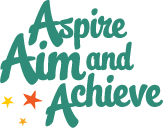Post-Primary
Beat Your Best Athletics
Pupils will:
- practise, refine and develop skills relevant to individual athletic events; and
- set and review targets for personal achievement.
Statutory Requirements:
Physical Education
Developing pupils Knowledge, Understanding and Skills
Pupils should have opportunities to:
- increase their knowledge, understanding and skills through frequent and regular participation in a balanced programme of athletics, games (invasion, fielding/striking and net/wall), gymnastics, swimming, dance and outdoor education;
- practise, refine and develop skills and specific techniques, for example using strategies, tactics, choreographic and/or compositional principles, and use these with consistency;
- develop their knowledge of safe practices and procedures when taking part in sport and physical activity;
- develop the skills and capabilities required to analyse and improve their own and others work; and
- develop the skills and capabilities required to work effectively with others in tasks that require co-operation, creativity, problem solving, planning and team work.
Learning Outcomes
Pupils should be able to:
- work effectively with others;
- demonstrate self management by working systematically, persisting with tasks, evaluating and improving own performance; and
- communicate effectively in practical, oral, visual, written and ICT formats, showing clear awareness of audience and purpose.
Cross-Curricular Skills:
Communication
Talking and Listening
Pupils should be enabled to:
- listen to and take part in discussions, explanations, role plays and presentations;
- contribute comments, ask questions and respond to others points of view;
- communicate information, ideas, opinions, feelings and imaginings, using an expanding vocabulary; and
- use non-verbal methods to express ideas and engage with the listener.
Connected Learning Opportunities:
Learning For Life and Work
Pupils will:
- develop positive relationships and respect for the differing capabilities of others through participation in a range of competitive and co-operative physical activities, for example show respect for and empathise with peers in a range of group activities within school and with other schools (Key Element: Mutual Understanding);
- develop positive sporting behaviour and a sense of fair play, for example know how to conduct themselves in sporting competitions, accept the authority and decisions of referees, judges and umpires (Key Element: Moral Character);
- work with others to solve problems in a range of practical situations, for example by listening to others and responding to and building constructively on their ideas and views, understanding the need for rules (Key Element: Citizenship); and
- develop, through practical tasks, their personal skills in preparation for future education/training/employment, for example using initiative, enterprise, creativity and skills in problem solving, decision making, leadership and co-operation (Key Element: Employability).
This activity explores the Olympic and Paralympic values of excellence, respect and inspiration by exploring how to improve personal performance within the individual athletic events. Pupils should complete the classroom activities in Olympic and Paralympic Values before starting the PE activities below.
This activity is aimed at pupils from Year 8 to Year 10. You can use it to support and enhance learning in an athletics unit of work. You can adapt it to suit the particular athletic event you are teaching. Before undertaking this activity, make sure you have taught your pupils the techniques and safety elements relevant to the chosen athletic event.
Activity
Inspiration
As an inspirational introduction to the activity, show your pupils a video of an Olympic athlete beating their personal best or breaking an Olympic or world record, for example Usain Bolt winning the 100m in the 2008 Beijing Olympics.
Discuss the Olympic and Paralympic values of excellence and determination. You may refer to the classroom activities on the Olympic and Paralympic Values. Ask your pupils how athletes demonstrate these values, for example breaking a world record shows excellence and achieving improvements through training shows determination. Show the Usain Bolt Profile to the class and ask how he has shown excellence and determination.
How Far Can You Go?
Set your pupils the task of sprinting as far as they can in Usain Bolt’s world record time of 9.58 seconds. Measure their distances and then compare them to the 100m distance Usain Bolt covered.
Challenge Yourself!
Set your pupils the task of achieving their personal best time/distance/height in the athletics event that is the focus for the lesson/series of lessons.
Give each pupil a copy of the ‘Beat Your Best Record Sheet’. Challenge them to practise, review and improve their personal best over the course of the season. They can do this during lesson time, at extracurricular clubs, at school sports day or in athletics competitions representing the school.
Give your pupils the responsibility of updating their personal Beat Your Best Record Sheet.
You may decide to let your pupils use them for the athletics unit of work for that year, or they could use them over a number of years so that they can monitor their personal performances over a longer period.
School merit/house/commendation points can be awarded for beating a personal best. It is essential that you praise and reward pupils for their determined efforts and for aiming to beat their personal bests rather than competing with others in the class.
You will need
Video footage of world and/or Olympic records being broken (search online for suitable sites)
Resource
Further Information
BBC World Class The Fastest Man on the Planetnews.bbc.co.uk

